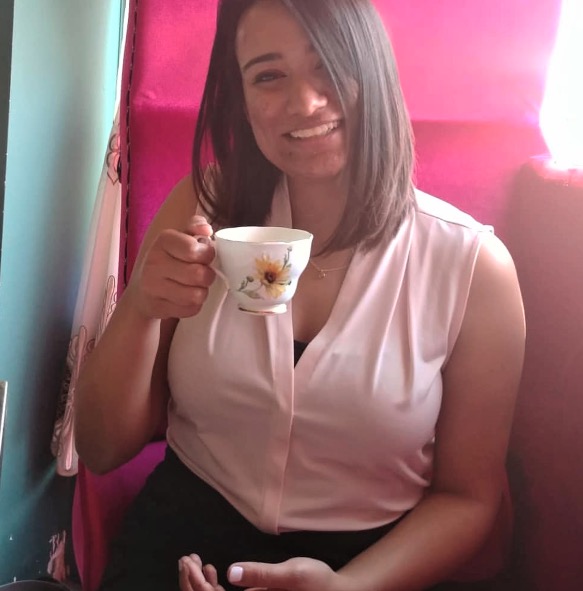“Something will grow from all you are going through, and it will be you”
When I was flying back to Canada this past summer, my partner gave me a beautiful poster with this phrase on it. And when I received the gift, I said to myself, “This is something I need to remind myself about everyday. No more complaints. No more crying. I just got to make the best out of my research.”
I love to be vocal about my MSc journey because the stories that leave us with a “I am not alone!” feeling are unexpectedly encouraging. Herein, I am going to let my story of struggle and success do the talking.
When I was working towards my undergraduate degree in Biotechnology, I was selected to partake in one of the most prestigious research internships in India. Though it was an amazing learning opportunity, I realised that I was not meant for a wet-lab focused field. However, I wanted to give myself another chance to fully realise that I would not want to be a biotechnologist once I graduate. Hence, I started contacting professors in Canada for an international research internship.
Why I chose Canada
I don’t know! I believe Canada chose me.
I did not know what I was getting into but I had incredible faith that I was on the right track. Instead of sitting for campus placements, I chose to dedicate my time and effort in dropping emails to Canadian professors. By the end of September 2014, I had already sent at least 200 emails which ultimately resulted in rejections; either professors were not looking for new students or they did not have enough funding for international students. It was one of the most discouraging phases of my life and I was doubting every bit of my decision to solely focus on research internships.
After three months of struggle, I received a much-awaited opportunity to work with a professor in Vancouver at the University of British Columbia (UBC). I managed a solo project during the 6-month research internship, where I conducted laboratory experiments and analysis using advanced biotechnological methods. I also co-authored a research paper, directly helping the industry with its then new business product (an antibody microarray chip).
Two months into the internship I was certain that I would need to step out of the laboratory to achieve a deeper sense of satisfaction. This self-introspection inspired me to push myself past my limits and realise my ultimate goals. However, I was scared since I was walking towards an extremely new path with no proper guidance or knowledge. All I knew was that I wanted to stay in medical research and I needed frequent interactions outside of the laboratory setting. Though this new decision was terrifying, I was excited to explore different dimensions of medical research. While I was finishing my internship, I started contacting professors who were focused on epidemiologic and public health research. I figured that since I was in Vancouver, I could meet some of the professors in person. Conversely, it was an uphill battle to schedule meetings with very busy researchers; and I could see myself going nowhere.
After 4 months of frequent emailing, I finally landed an interview with Dr. Gillian Hanley (my current supervisor) who is an Assistant Professor in the UBC Department of Obstetrics & Gynecology. She is also a health services and health economics researcher with OVCARE (British Columbia’s multi-institutional and multidisciplinary ovarian cancer research group). Though I did not have any background in statistics, epidemiology, or health-data analysis, she had incredible faith in my abilities and agreed to supervise me. I secured a spot in the Department of Obstetrics and Gynecology (MSc in Reproductive and Developmental Sciences). And in order to graduate, I had to write a thesis outlining important clinical conditions faced by women such as preeclampsia and ovarian cancer, to name a few. Consequently, I started working as a graduate research assistant at the BC Cancer Research Center.
Owing to a drastic transition from biotechnology to public health, I had to start everything from scratch. I took courses on biostatistics, Epidemiology and R statistical analysis. It was extremely overwhelming to think like a public health researcher, but these courses helped me to develop analytical skills, that included core concepts of statistical analysis and data visualisation. My supervisor was also very patient with me, giving me enough space and time to translate my thoughts into my research topic. Her wisdom, guidance, dedication and positive attitude helped me reach the next level in my dream career.
Moving into public health
My MSc thesis was primarily built on ovarian cancer survivorship, through an epidemiologic and public health lens. I focused on updating the incidence and survival statistics of epithelial ovarian cancer in British Columbia. I also studied the long-term mortality (causes of death) among women with epithelial ovarian cancer following diagnosis. This research was very rewarding to me since I contributed something significant to the medical world by focusing on areas that had received little attention in the past. I was able to illustrate that the end of cancer treatment is not the end of cancer experience, and that we must focus on improving the life of ovarian cancer survivors. I received a deeper level of happiness and satisfaction when two chapters of my thesis were accepted by scientific journals; one in BMC Cancer and another one at the International Journal of Gynaecological Cancer (in press).
Grad school was indeed a tough battle. But I found myself getting better at every possible area; be it communication, project management, scientific writing, or data-analysis. I worked towards the skills that I thought never existed in me; and I found a new passion in writing, while working on my thesis and manuscripts. This would never have happened if I did not go through the rigorous MSc training (thesis- based learning) at the University of British Columbia.
Currently, I am working as a Research Assistant at the BC Cancer Research Center and doing every bit to improve the lives of women with ovarian cancer, by making sense of clinical data. Talking about prospects, I intend to explore the medical world from different angles: healthcare consulting, creating awareness regarding women’s health issues or simply guiding youngsters on how to shape their interests in biology.
In all, I learnt so many incredible lessons by stepping out of my comfort zone. By the end of my “struggle” period, I had sent 400 emails to professors. Of innumerable rejections, one positive reply was no less than a miracle. I did have “on–off” episodes before and after getting into UBC, but I never lost hope, which eventually lead to an incredible transformation. Since I am vocal about my weaknesses, I see a purpose behind every trial and tribulation. After all the hard work that went into experiencing a world outside laboratory, I feel more confident and mature. Now, I believe in newness of life that is very well connected with self-awareness and the inmost desire to strive in any condition.






